THE REBIRTH OF A COMMUNITY
The Smokey Mountain in Tondo, Manila once became a symbol of poverty as most of the residents lived below poverty line and worked as scavengers. Today, Smokey Mountain serves as a symbol of hope as former scavengers have now found safer and more stable sources of income.
Smokey Mountain opened in 1950s as an unplanned dumpsite and attracted those living in the slums to reside in the area to earn a living through scavenging. The dumpsite had put thousands of lives at risks and had pushed people into poverty. It officially closed down in mid-1990s through the efforts of the government and its partners.
Through the Sambayanan ng Muling Pagkabuhay Multi-purpose Cooperative (SMP-MPC), residents of the former dumpsite in Tondo, Manila have found opportunities to earn a living without having to put their lives as risk.
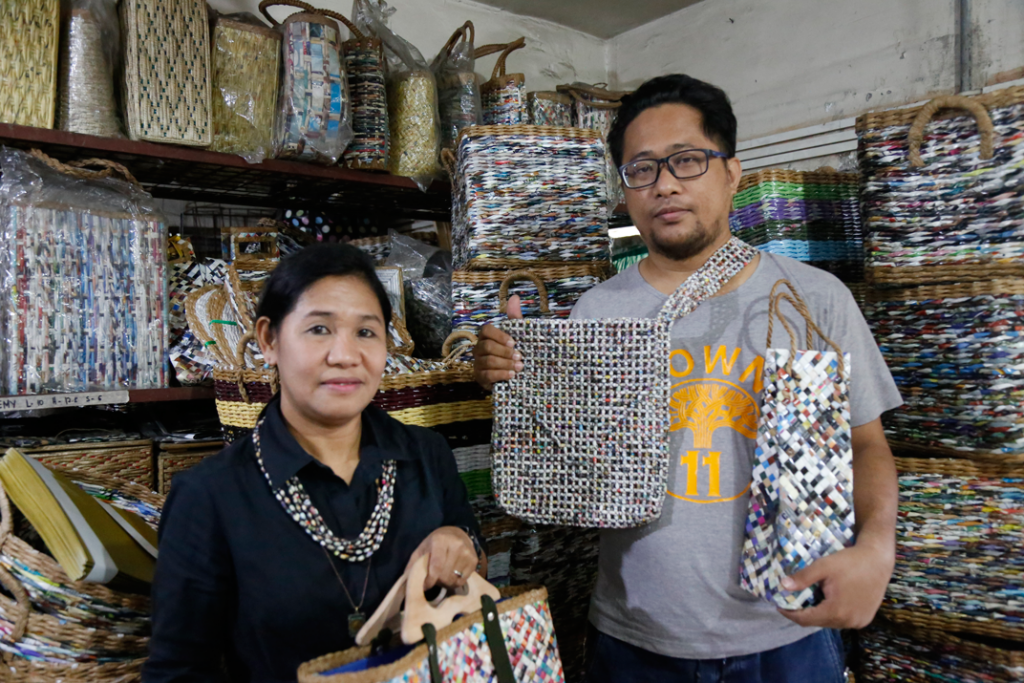
One of the cooperative’s main projects is craft business where members are tapped to make placemats, coasters, boxes, and other crafts using old newspapers. The cooperative runs a water refilling station and a laundry shop on the side.
The cooperative officially started in 1989, but faced financial and management challenges in mid-1990s. There were many lessons learned along the way, and the cooperative managed to get back on its feet after a few years.
Starting again
Joyet Castor, Chairperson of SMP–MPC, recalled that during the cooperative’s first few years, most of its leaders and members did not have the skills to run a sustainable enterprise. Joyet was working for a non-government organization (NGO) and was eventually invited to become part of the cooperative.
“Many of them did not have any background on finances and accounting, so we thought of empowering them by educating them,” Joyet said.
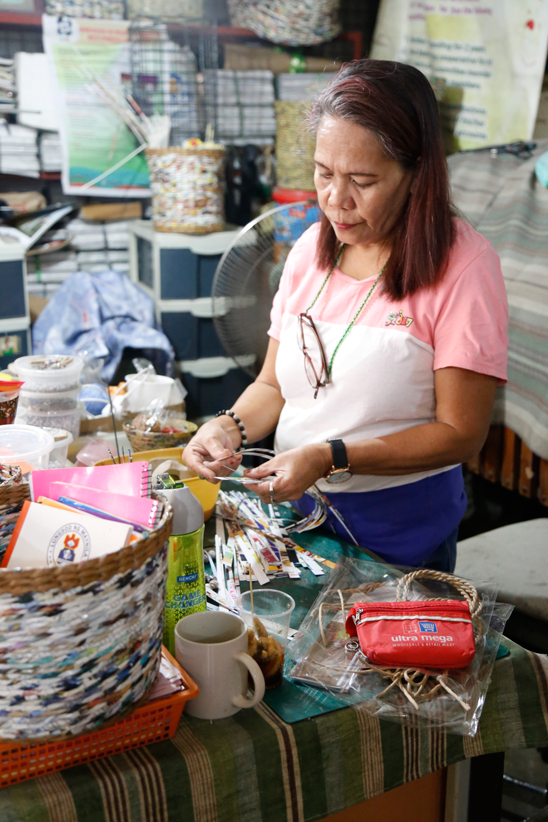
The SMP-MPC received an Asian Development Bank (ADB) financial grant from 2005 to 2007. “We made sure to prioritize our people. We enrolled them in short courses to help them brush up their skills that is crucial in running the cooperative effectively and sustainably,” she said.
Through the grant, the cooperative was able to set up a materials recovery facility (MRF). Residents and members were also given certification on skills related to recycling. The MRF eventually gave the residents decent income without having to subject themselves to the hazards surrounding the dumpsite.
The cooperative, which maintains its own handicraft shop, was able to gather raw materials for their products. Old magazines and newspapers, kept at the MRF, were also used by the cooperative’s women weavers. These products helped the cooperative earn which they later used to expand further.
SMP-MPC enrolled two of the cooperative members on bookkeeping courses, and both of them later on became certified bookkeepers. “The cooperative will grow if we will invest on its people,” said Joyet.
In 2013, the cooperative took a leap of faith and decided to join Manila FAME exhibition, a premiere design and lifestyle event organized by the Center for International Trade Expositions and Missions (CITEM), the export promotion arm of the Department of Trade and Industry (DTI). They needed a label for their products, and the cooperative decided to call their line as PAPEL (paper). Today, PAPEL is now seen in various bazaars and stores.
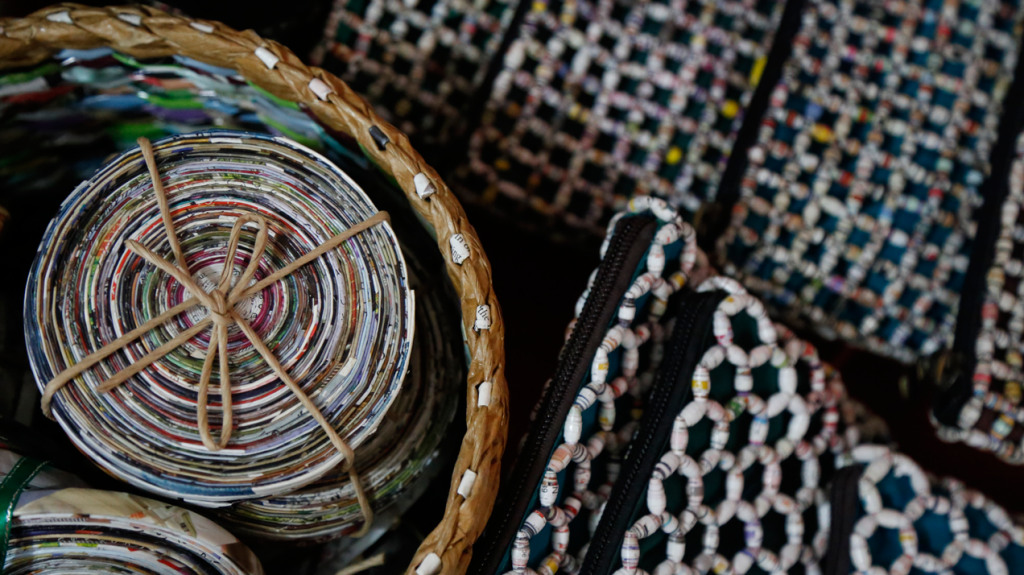
Through the support of various organizations and government agencies, particularly DTI, the cooperative started to recover and improve after some years of struggling with financial and management problems.
The cooperative has grown since its establishment. From 25 members, it now has 150 members. SMP-MPC continues to grow as more and more people realize the importance of joining the group.
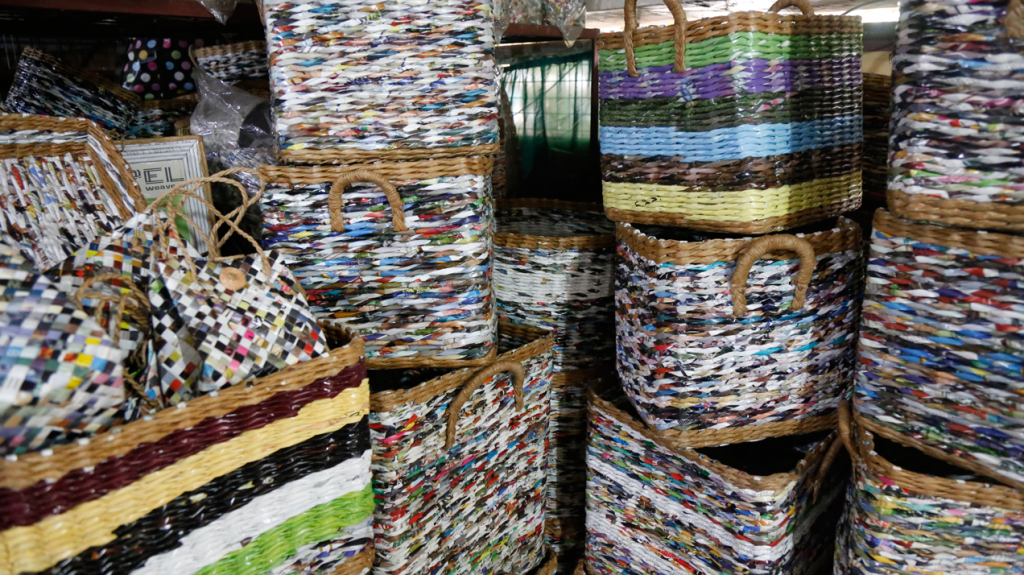
The cooperative helps its members live a more decent life, and have someone to turn to in cases of financial emergencies. SMP-MPC has also become an effective platform to acquire new skills and knowledge on various aspects of business management.
Aside from the handicraft business, the cooperative also maintains a water refilling station and a laundromat, providing additional sources of income to its members.
Standing on their own
Before the cooperative was established, the residents were used to receiving dole outs. Since Smokey Mountain was often used as a symbol of poverty in urban areas, many groups and individuals would come to the area and ended up giving dole outs to residents. This served as one of the main challenges since the behavior of these residents had to be changed. But this setback was eventually resolved after the residents were given access to opportunities.
The cooperative urges members to be self-sufficient by encouraging them to put up their own small businesses or be part of in the cooperative’s crafts production.
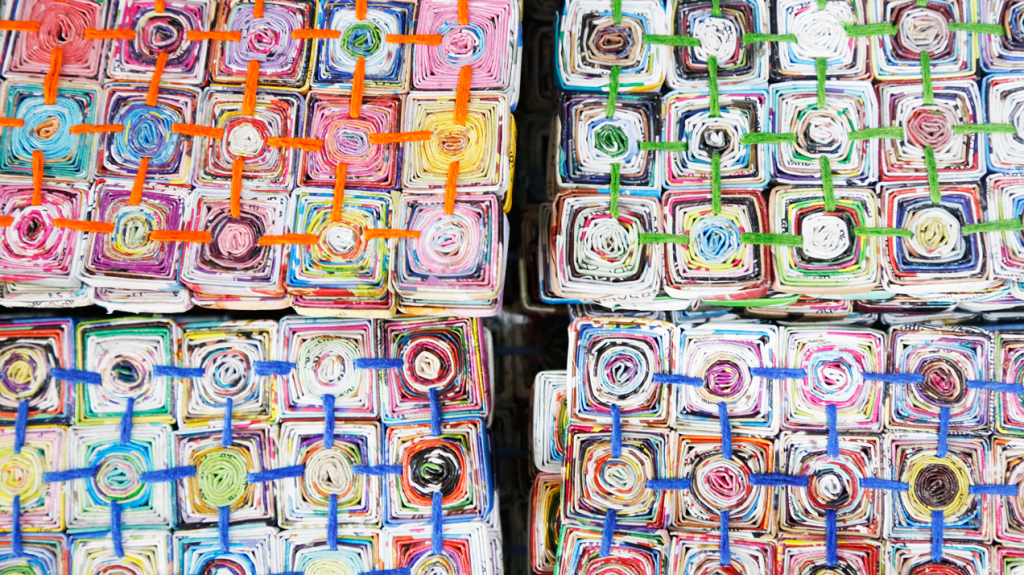
“The ultimate goal really is to help them to stand up on their own,” said Joyet. She explained that organizations and individuals helping the residents will not stay forever.
On the average, each weaver would get Php 180 per basket weave produced. The best part of working for the cooperative is that they could just get the materials from the office, and create the crafts at home. This way, the mothers are able to work in their homes and at the same time do household chores or look after their children since they are paid on a per output basis.
She added that the cooperative wants to promote their handicrafts for its quality. “We don’t want that people would buy our products out of pity. We want them to buy because of the quality,” said Joyet who shared that designers have been extending their help on how the women weavers of the cooperative could improve further.
Joyet also expressed gratitude to DTI for extending help in product development and marketing, which were crucial in the handicraft venture’s success.
SMP-MPC has been encouraging more residents to be part of the cooperative, especially the youth. According to Joyet, the cooperative is a good opportunity for the members to improve their living conditions and themselves as individuals.
“For us to grow, we need to learn from others,” said Joyet who encourages the members of the cooperative to constantly educate themselves in whatever means possible.
Gone are the days when the residents of this area in Tondo, Manila were seen as faces of despair and poverty. Today, the residents serve as a symbol of hope and resilience.



